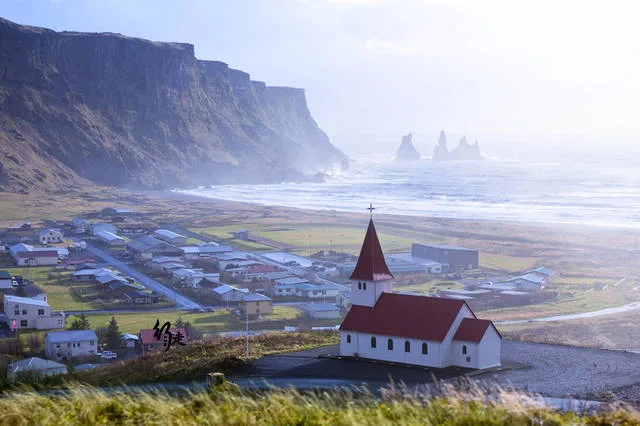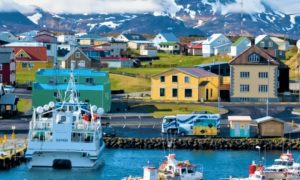In recent years, Iceland, a small Nordic country inimmigrantsThe circle is quietly heating up. The clean natural environment, high well-being social system, and friendly policies towards foreign techies and digital nomads are attracting the attention of more and more Chinese families and young people. ButImmigration to IcelandAre there really "low barriers" and "high benefits"? In this article, we will look at theApplication thresholds, living benefits, employment opportunitiesuntil (a time)cultural adaptationFull AnalysisIcelandic immigrantsThe Hidden Strengths and Real Challenges of
One,Icelandic immigrantsIs it true that there is a "low threshold"?
Iceland does appear to be more "people-friendly" in some ways than the traditional immigrant countries:
-
Relatively relaxed language requirements: Although Icelandic is the official language, most people speak English, and some visa paths (e.g., telework visa, EU Blue Card) do not require immediate knowledge of Icelandic.
-
Digital nomad visas attractive:: From 2023, Iceland will introduce a remote work visa, allowing non-EU nationals to legally reside in Iceland for up to six months, providing a new option for "temporary immigrants" in online professions such as IT, finance and self-publishing.
-
skilled migrantPaths are gradually opening up: Iceland has an acute shortage of skilled personnel such as IT engineers, doctors, chefs, etc., and those with the corresponding qualifications and work experience can enter the immigration channel through job invitations.
However, "low threshold" does not mean "zero threshold". Most applications for permanent residence still require four years of continuous residence, payment of taxes, proof of a stable income and passing an Icelandic language test.
II. Behind the high welfare: the current situation of health care, education and housing
Iceland's welfare system is known as a Nordic model, and its universal health care, free basic education and comprehensive social safety net are important attractions for expatriates.
-
medical care: Universal health insurance coverage is high, registration fees are extremely low, and the emergency care system is responsive. However, there are limited resources of specialized doctors and long waiting times, especially in the public system.
-
teach: Basic education is free, university fees are relatively inexpensive, and there are many international programs, making it suitable for families who want to educate their children bilingually in English + Icelandic.
-
Childcare benefits and social security: Families with newborns can apply for a monthly childcare subsidy, family welfare protection is strong, and single-parent families also enjoy more care.
-
housing pressure: Although overall house prices are lower than in other Nordic countries, rents have risen faster in recent years, and housing is tight in the capital city of Reykjavík, requiring advance planning.
III. Work and income opportunities: can you get your feet wet in Iceland?
Despite its remoteness, Iceland is a developed country with a stable economy, high per capita income and an expanding service and technology sector. However, it faces certain challenges:
-
Small markets limit career choices: With a population of only about 380,000, Iceland has a small market size and limited employment opportunities in non-vacant occupations.
-
local area network is important: Many jobs are filled by "insiders" or local referrals, so it's not easy for newcomers to find a job.
-
Hot Industry RecommendationsSoftware engineering, construction, nursing, and environmental technology are current shortages, and those with a background in studying or working abroad are more competitive.

IV. Challenges of reality: climatic isolation, cultural adaptation and psychological gap
Even though Iceland's benefits are enticing, they are not for everyone, and the following challenges should not be overlooked:
-
Cold climate, short sunshine: The long winters, often accompanied by extreme nights, are a great physical and psychological test for people in the South.
-
Closed cultural circlesIcelandic society emphasizes personal space and interpersonal relationships are slow to develop, which takes time for Chinese people who value a "humane society" to adapt to.
-
Language barriers still exist: Despite the popularity of English, Icelandic still has a key influence in the workplace, policy applications, and children's schooling.

-
Immigration is not the same as naturalization: Icelandic naturalization requirements are strict and usually require 7 years of legal residence, language skills, tax records and proof of innocence.
V. For which population groupsImmigration to Iceland?
Based on current policy and real-life feedback, the following groups of people are better suited for considerationImmigration to Iceland::
-
Professionals with technical expertise who can obtain residence through the work route
-
Freelancers or telecommuters looking for a short-term relocation experience
-
Families who wish to educate their children in small classes and grow up with low stress
-
Slow-life seekers who prefer a natural, quiet and pollution-free environment.






